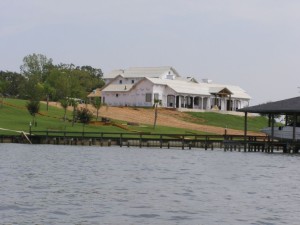Although the National Flood Insurance Program (NFIP) is a federally managed program, it is implemented with extensive state and local participation.
 States
States
Each state has a designated NFIP Coordinator. This person guides and assists NFIP communities in developing, maintaining and enhancing their floodplain management regulations. They also provide technical guidance and training to participating NFIP communities and act as a liaison between FEMA and the local community Floodplain Administrator.
Outside of NFIP requirements, states are free to enact more restrictive floodplain rules if they choose to do so.
Local Communities
Locally, NFIP participating communities must enact minimal floodplain regulations. Some communities choose to enact further floodplain regulation beyond that required for NFIP participation. NFIP participation for a community is voluntary, but is required for a community to access affordable subsidized flood insurance. Otherwise, private-market floodplain insurance may be the only option.
Local communities that participate in the NFIP program are required to have a Floodplain Administrator to manage their NFIP program, to implement specific ordinances the community has enacted with regards to floodplain management, and to review and act on permit applications. Ultimately, local communities have significant discretion in how they manage their NFIP programs, should they choose to do so.
More information on NFIP reform is available at http://www.fema.gov/flood-insurance-reform.



